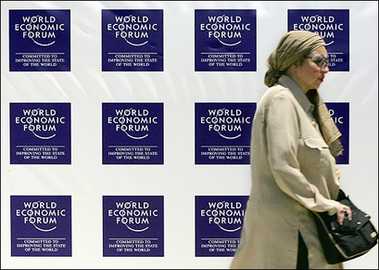By Jonathon Burch and Ebru Tuncay
ANKARA | Thu Jan 26, 2012 8:36am EST
(Reuters) – Turkish lender Halkbank will continue to handle customers’ oil payments to Iran as long as they comply with international regulations, the bank’s general manager said in the wake of fresh, unilateral U.S. and EU sanctions.
Halkbank’s dealings with Iran drew attention last year when Indian refiners disclosed they were channeling oil payments through the Turkish bank as their own central bank had shut its payment facility, fearing U.S. retribution.
Majority state-owned Halkbank is Turkey’s sixth largest bank, based on unconsolidated assets, and has a representative office in Tehran.
It also processes payments to Iran by Tupras, Turkey’s sole refiner and a unit of Koc Holding, the country’s largest conglomerate, according to energy sector officials.
General Manager Suleyman Aslan denied there had been U.S. pressure to stop handling transactions, as the bank was not acting illegally. He said a decision to reject an application from another Indian refiner late last year was unrelated to its trade deals with Iran.
In an interview with Reuters Aslan said “communication channels” with all sides, including the United States, were open and that apart from India, the bank was not handling payments to Iran from any other third country.
He said decisions on whether to take business were based on banking rather than political criteria.
“We do not make any specific decision based on Iran or any other country. We have customers, and these customers approach us and we look at their transactions. This transaction may be in India, it may be in Iran it may be in another country,” he said.
“If it is legitimate business, we will carry out the job within the framework of international regulations and international standard practice.”
On December 31, President Barack Obama signed into law a fresh set of sanctions targeting financial institutions that deal with Iran’s central bank to stem the flow of oil revenue and persuade Tehran to abandon a suspected nuclear weapons program.
The European Union followed with a ban on Iranian oil this week that is expected to take full effect within six months.
Heavily dependent on imports of oil and gas from its eastern neighbor, Muslim NATO member Turkey opposed the imposition of U.N. sanctions on the Islamic Republic in 2010 but says it is abiding by those measures.
However, Turkish officials have repeatedly said there is no obligation for Turkey to enforce tougher unilateral sanctions subsequently announced by the United States and European Union.
“If after today processing these transactions brings about problems or becomes unlawful, we will not process them, however, according to the information that we are receiving now, these transactions are not unlawful,” Aslan said.
“Therefore, if our customers want to continue – they can.”
India, according to a government official in New Delhi this week, has agreed with Iran to settle part of their annual $12 billion oil trade in rupees.
And one refiner, Hindustan Petroleum Corp has agreed to double its imports from Saudi Arabia from April, in a move that could replace purchases of Iranian crude.
“TRANSPARENT”
Indian state-run refiners began using Halkbank to pay Iran for imported oil in July.
In December, however, Halkbank, which is 75 percent state-owned, declined to open an account for an additional Indian refiner, Bharat Petroleum Corp BPCL, fuelling speculation the lender may be planning to stop payments to Iran.
However, Aslan said the decision to refuse BPCL was because it was unable to provide a satisfactory reference to Halkbank and was unrelated to concerns over doing more business with Iran.
Asked if Halkbank would consider dealing with BPCL in the future, Aslan said even with the necessary reference the bank “may still not” handle payments from the refiner and that “this will depend on the situation at the time.”
U.S. Treasury officials have visited Turkey several times to advise banks dealing with proscribed Iranian entities that they risked being frozen out of the U.S. financial system.
Asked if U.S. officials had met directly with Halkbank, Aslan said: “We have had meetings in the past,” but he denied the bank had come under any pressure.
“We are pursuing this matter in a transparent way because we are not doing anything illegal, we are handling this matter in a very open way by talking to all sides. All our communication channels are open.”
This month a Turkish energy ministry official confirmed Turkey would seek a U.S. waiver for Tupras, a major customer for Iranian oil.
Obama could grant waivers to institutions in countries that significantly reduce dealings with Iran.
Tupras, according to industry sources familiar with the company’s strategy, is seeking to buy more oil from Saudi Arabia to reduce dependence on Iran for supplies.
Turkey imports over 200,000 barrels per day, around 30 percent of its consumption, from Iran.
On a visit to Ankara this month, Iran’s foreign minister projected annual trade with Turkey doubling in the coming four years to reach $30 billion in 2015, while Turkey’s urbanization minister said the two countries were planning important steps to ease money transfer processes.
(Writing by Jonathon Burch; Editing by Simon Cameron-Moore)
via Exclusive: Halkbank to handle Iran payments so long as legal | Reuters.





